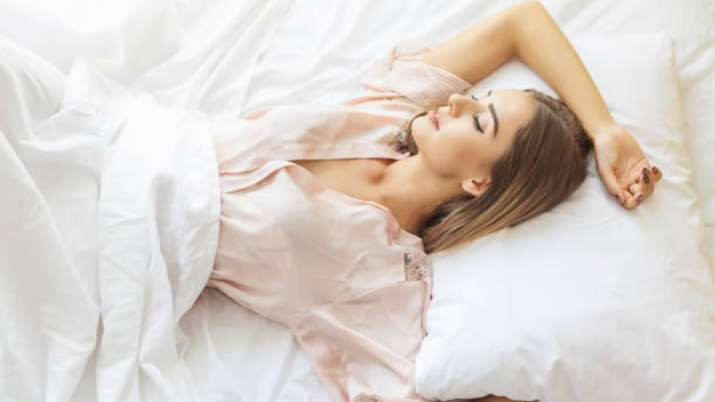
Management Of Sleep Deprivation, There are many people from all walks of life, and it can be difficult to find the commonalities between them. We all have one thing in common: a lack of sleep. Millions of people in the United States suffer from Management sleep deprivation, a condition in which people do not get enough sleep to stay awake and function well.
According to research on American health conducted by the Centers for Disease Control and Prevention, between 7 and 19 percent of Americans report feeling fatigued every day. That’s a lot of information. At any given time, 60 million Americans roam about like zombies in the United States.
This is problematic because sleep is essential for our physical, mental, and total wellness. There are a variety of approaches to managing sleep deprivation, including drugs (such as Cenforce or Cenforce 200), but we’ll focus on some strategies.
How does sleep deprivation get treated?
If you’ve been diagnosed with sleep apnea, you have a variety of treatment choices. You can take from the next options:
- Increase the amount of time you spend sleeping.To avoid sleep deprivation, it is advisable to go to bed more frequently. You can plan more sleep time each night to ensure that you get enough rest.
- Changes in one’s lifestyle.Sleep deprivation can be caused by lifestyle factors such as stress. These things can be changed to help you sleep better. Hiring an expert to help you with a sick family member, adjusting work hours to make them more conducive to sleep, and minimising your involvement in things that keep you up late, such as drinking or watching television, are just a few of the most helpful lifestyle modifications.
- Strategies for Homecare.People with sleep problems can benefit from a range of natural, home-based techniques. This approach is discoursed in detail in the resulting section.
- Cognitive Behavioural Therapy (CBT).This well-known type of treatment can help patients understand the origins of their behaviour or cognitive habits that may be interfering with their sleeping patterns, as well as design strategies to improve them.
Some circumstances may necessitate the use of prescription or over-the-counter sleep aids. These could include benzodiazepines, hypnotic sleep aids, Vidalista Australia, and Vidalista 40, as well as medicines like valerian root and Fildena 200. These drugs may have negative side effects that lead to addiction. This is why it’s critical to use them under the supervision of a physician.
Managing Sleep Deprivation in a Natural Way
More than the natural remedies of Management Of Sleep Deprivation discussed in the preceding paragraphs, there are other natural ways to avoid or manage it. The following are some recommendations for dealing with sleep deprivation.
When you’re exhausted, go to bed:
Many people have problems sleeping at night, despite how simple it may appear. When you’re most relaxed and ready to sleep, it’s a good idea to put your feet up.
Maintain a regular sleep-wake cycle.
It is critical that your schedule allows you to get between seven and eight hours of sleep per night. If your bedtime and wake-up hours are constant, you’ll be able to fall asleep at the same time every night. This can assist in maintaining a healthy sleeping rhythm in your body.
Utilize the natural light accessible during daylight hours.
It’s a terrific technique to boost your body’s clock while still keeping a regular sleep-wake cycle. When you are exposed to sunshine, your circadian rhythms work properly, allowing your body to sleep at the appropriate time each night. You’ll have a better chance of obtaining adequate sleep if you do this.
Stress Reduction
If you are stressed or anxious, relaxing can help you fall asleep quickly. Sleep deprivation can be combated using techniques such as deep breathing meditation or gradual muscular relaxation. Yoga, meditation, and reading a book are all effective stress relievers.
Exercise on a regular basis: Exercising regularly might help you manage stress and fatigue in your body.
This will make it easier for you to fall asleep and will allow you to sleep for longer periods of time. To improve your outcomes, exercise for at least 20-30 minutes each day. It’s not a good idea to do this an hour before bedtime because it serves as a stimulant.
Don’t consume stimulants before going to sleep.
This includes abstaining from nicotine and caffeinated beverages. It’s a respectable idea to limit your caffeine eating to the morning. This will confirm that your body can disregard caffeine earlier you go to bed. It’s a good idea to limit your alcohol intake before going to bed. Even if it isn’t euphoric, it is considered to alter your sleep quality
Make your bedroom a relaxing, dark, and comfy sleeping environment.
This can be accomplished by investing in sound-canceling curtains (or earplugs). Avoid stressful interactions late at night by using electronic devices.
Before going to bed, turn off all electrical gadgets. Blue light from cell phones, tablets, laptops, and other electronic gadgets can disrupt our bodies’ circadian rhythms. Make it a practice to stay away from blue light for at least two hours before going to bed.
Take a snooze in the afternoon.
This is frequently the most effective method for recovering from sleep deprivation. Set a timer for 25 minutes. If you take short naps, you may feel more awake, but if you take longer naps, you may feel weary.
